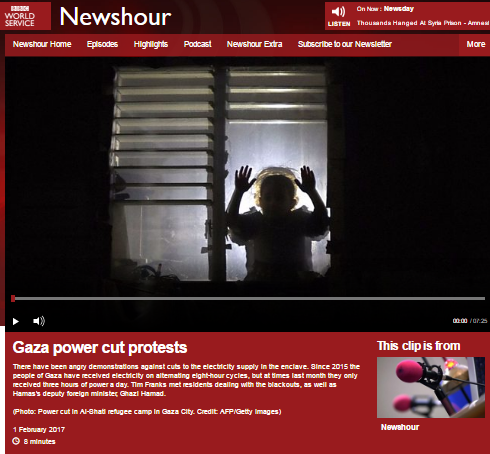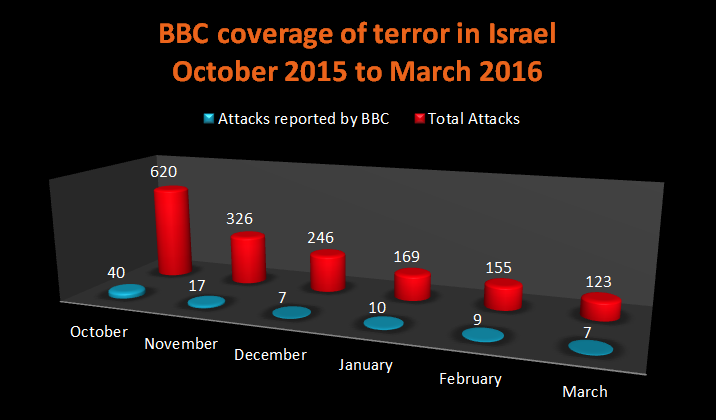When some residents of the Gaza Strip took to the streets last winter to protest their inadequate electricity supply, the BBC News website produced two written reports on that story and the BBC World Service programme ‘Newshour’ aired a special report by Tim Franks from Gaza that included a ‘softball’ interview with a Hamas representative.
None of those reports, however, provided BBC audiences with a clear and factual explanation of the reasons behind the Gaza Strip’s electricity crisis. Since then the BBC has produced more reports which (with few exceptions) have been similarly unhelpful (see for example here, here, here, here and here) even to the point of steering audiences towards the inaccurate impression that the crisis is connected to Israeli counter-terrorism measures along its border with Gaza.
As was noted here in June, Hamas could have paid for the Gaza Strip’s electricity supply after the Palestinian Authority exacerbated the crisis earlier this year had it wished to do so and were its priorities not focused on expanding its military capabilities.
Now, however, a report at the Times of Israel suggests that Hamas is eager to avoid a repetition of last winter’s public unrest.
“Hamas has recently bought large volumes of diesel fuel from Egypt in an effort to increase the output of the Gaza Strip’s only power station, after months of refusing to shell out money to provide electricity to the Palestinian enclave’s residents. […]
The purchase of some 30 million liters of diesel from Egypt, at a cost of NIS 90 million ($25 million), marks a change in attitude on the part of Gaza’s rulers, likely indicating a bid to stave off a repeat of street protests that roiled the enclave last winter. […]
Hamas, a terror group that is the de facto ruler of the Strip, has refused to pay for Israeli electricity, claiming the PA is responsible for funding it, while spending millions of dollars of military infrastructure. Earlier this year the PA reduced the amount of electricity it was willing to pay for, and as a result electricity supplies in Gaza were reduced from six to four hours followed by a 12-hour blackout.”
Given that this apparent development undermines previous BBC messaging suggesting that the Gaza power crisis is related to Israeli border controls (which have even been presented as “collective punishment“), it remains to be seen whether or not BBC audiences will be informed that Hamas is able to import fuel at will.
Related Articles:
BBC News again avoids telling audiences real reasons for Gaza power crisis
BBC WS radio ‘Newshour’ special from the Gaza Strip – part one
BBC WS radio ‘Newshour’ special from the Gaza Strip – part two




